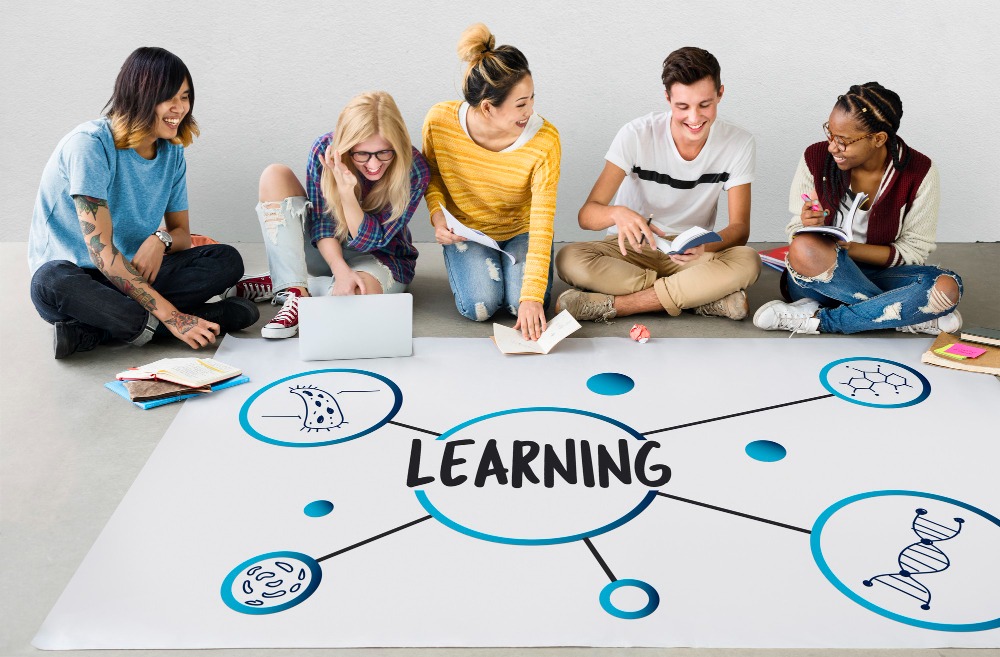There is a growing challenge to the traditional approach to education in the quickly changing employment economy of today. Adaptive education is essential as the gap between academic knowledge and the practical skills demanded by industry widens. This blog examines the idea of adaptive education, its significance, methods for curriculum alignment with business needs, and the advantages it provides to companies, educational institutions, and students.
The Requirement of Flexible Learning
The term “adaptive education” describes a dynamic, flexible method of instruction that changes to meet the ever-changing demands of business. Adaptive education places a higher priority on making changes to course material, instructional strategies, and skill development in real-time than traditional education approaches, which frequently follow static curricula.
Industry Evolution: As a result of globalization, technology breakthroughs, and changes in consumer behaviour, industries are changing quickly. Academic programs need to adapt to these developments in order to adequately educate students for their future employment.
Skill Gaps: The talents that companies require and those that are taught in schools are becoming more and more out of sync. Underemployment and inefficiencies in the labor market may result from this disparity.
Lifelong Learning: The idea of lifelong learning becomes increasingly important as jobs change. By encouraging ongoing skill improvement, adaptive education makes sure that students stay employable for the duration of their careers.
Techniques for Matching Industry Requirements with Curriculum
In order to efficiently match industrial demands with academic programs, educational establishments might employ multiple approaches
Industry Cooperation: In order to understand the needs of employers and industry leaders, educational institutions should actively interact with them. This partnership can look like this
Advisory Boards: Establish advisory boards consisting of industry experts who provide insights into current and future skill needs.
Partnerships: Develop partnerships with companies to offer internships, apprenticeships, and co-op programs that provide hands-on experience.
Curriculum Reviews: Regularly review and update curricula based on feedback from industry partners to ensure relevance and applicability.

Incorporate Emerging Technologies
To adequately prepare students for the job of the future, emerging technologies must be incorporated into the curriculum. This may consist of
Digital Tools: Make use of digital platforms and tools to improve instruction and give students hands-on practice with industry-standard software and technologies.
Virtual Labs: Without requiring physical infrastructure, establish virtual labs where students can experiment with new technologies and acquire useful skills.
Online Courses: Provide certificates and online courses in cutting-edge subjects like data science, cybersecurity, and artificial intelligence.
Set Soft Skills First
Employers are placing a greater emphasis on soft skills like teamwork, communication, problem-solving, and adaptability in addition to technical talents. These abilities should be included in educational programs through
Project-Based Learning: Introduce project-based learning, where students collaborate and use critical thinking skills by working in groups to solve real-world problems.
Soft Skills Workshops: Conduct seminars and workshops aimed at fostering emotional intelligence, leadership, and interpersonal skills.
evaluation Techniques: To get a complete picture of a student’s ability, use evaluation techniques that look at both technical and soft skills.
Continuous Curriculum Improvement
A dedication to ongoing development is necessary for adaptive education. This can be accomplished by:
Feedback Loops: To get feedback on the efficacy of the curriculum and areas for development, set up feedback loops with companies, alumni, and students.
Data Analytics: Track student performance, spot skill gaps, and modify course material to fit changing requirements with the use of data analytics.
Professional Development: To make sure instructors are up to date on the newest information and instructional techniques, make an investment in their professional development.
Real-World Integration
The curriculum can more effectively close the knowledge gap between theory and practice by including real-world experiences. Among the strategies are
Case Studies: Use case studies from different sectors to show how theoretical concepts are used in real-world situations.
Invite professionals from the sector to give guest lectures so that students can gain firsthand knowledge of the methods and trends in the business today.
Capstone Projects: To encourage students to apply their knowledge and abilities, require them to complete capstone projects that address real-world difficulties.
Advantages of Flexible Learning
Using an adaptable education approach has several advantages for employers, educational institutions, and students.
For Learners: Improved Employability: Students become more marketable to companies by gaining relevant experience and abilities.
Career Readiness: Graduates are more equipped to adjust to shifting employment demands and join the workforce.
Lifelong Learning: Students acquire an attitude of perpetual learning, which helps them to remain employable.
For Educational Institution
Reputation of Educational Institutions: Schools that match industry demands with their curricula gain more respect from the community and draw in more students.
Industry Relationships: Having solid alliances with key players in the field can open up new avenues for funding, resources, and cooperation.
Curriculum Relevance: Updating the curriculum on a regular basis guarantee that educational programs stay competitive and relevant.
In summary
In order to close the gap between academic learning and business expectations, adaptive education is crucial. Through the implementation of adaptable curriculum, integration of cutting-edge technologies, emphasis on soft skills, and encouragement of ongoing development, educational establishments can equip learners for prosperous professions in a constantly evolving labour market. In addition to improving graduates’ employability, industry leaders’ and educators’ joint efforts foster the economy’s general expansion and innovation. The dedication to adaptive education will be crucial in determining how work and learning are shaped in the future.
Dr. Subhash University is the best university in Gujarat which offers many programmes, best university in Gujrat for Engineering| best university in Gujrat for BBA| best university in Gujrat for MBA |best university in Gujrat for B.com |best university in Gujrat for M.com| best university in Gujrat for Nursing |best university in Gujrat for BSC |best university in Gujrat for MSC| best university in Gujrat for BCA |best university in Gujrat for MCA |best university in Gujrat for Physiotherapy best university in Gujrat for BA |
